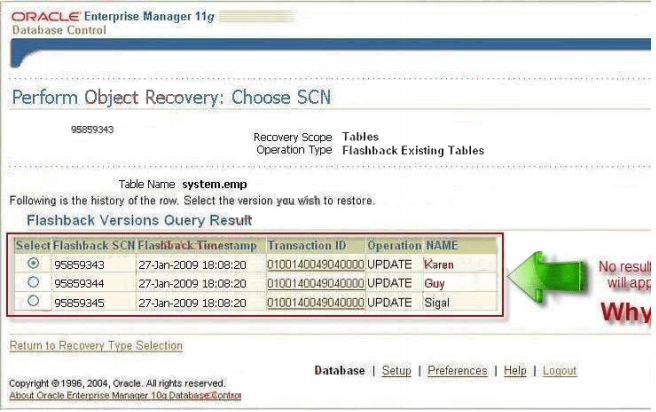Examine the following commands and their output:
SQL> SELECT ename, sal FROM emp WHERE ename='JAMES';
ENAME SAL JAMES 1050
SQL> UPDATE emp SET sal=sal+sal*1.2 WHERE ename='JAMES';
1 row updated.
SQL> SELECT ename, sal FROM emp WHERE ename='JAMES';
ENAME SAL JAMES 2310
View the exhibit and examine the Flashback Version Query that was executed after the preceding commands.
What could be the possible cause for the query not displaying any row? 
A. Flashback logging is not enabled for the database.
B. The changes made to the table are not committed.
C. Supplemental logging is not enabled for the database.
D. The database is not configured in ARCHIVELOG mode.
Using Oracle Flashback Version Query
Use Oracle Flashback Version Query to retrieve the different versions of specific rows that existed during a given time interval. A row version is created whenever a COMMIT statement is executed.